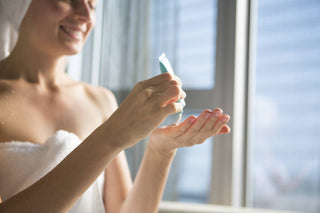After surgery, an important part of the recovery process is recovering your usual routine and lifestyle. And one of the first things you’re (literally) itching to do is take a nice, warm shower. But can you? How soon? And are there special precautions you need to take?
The good news is that after most surgeries, it looks like you may not have to wait too long to take that much-needed shower. The latest research suggests that for many patients, showering just 2 days after surgery was safe and didn’t increase the risk of infections around the incision site.
The patients, who had surgeries on the thyroid, lung, face, extremities, and certain abdominal hernias, were allowed to shower 48 hours after their operations. Their post-shower risk of surgical site infections? Similar to those who did not wash. Wound pain? Also similar. But the patients who showered were much more satisfied with their post-surgical care than those who didn’t.
If you’re planning to go under the knife soon, here are 9 tips to make your post-surgery shower experience more pleasant and pain-free:
Follow Instructions
Every procedure is different and every patient is different, so your post-surgical instructions will be tailored to you. How your incision was closed (sutures, staples, liquid tissue glue, etc.), and whether you have a waterproof bandage over the incision will change how you care for your surgical site. Make sure you follow your doctor’s instructions to a T, as this is crucial for a safe recovery.
Cover Up
If you need to keep water completely off your surgical site, cover the area for extra protection. There are waterproof dressings you can place over the surgical site like 3M Nexcare Tegaderm and Band-Aid Shower Care Bandage Protectors, which will help keep water out. Even Saran Wrap does wonders to cover up an area and prevent the incision site from getting wet.
Keep it Clean
That means no soaps, lotions, creams, ointments, powders, or other bath products around and especially not on/in the surgical site. If your doctor didn’t prescribe it or give the OK, then it’s off limits until you’re healed.
Be Gentle
When you’re cleaning your body, don’t scrub or rub, which can not only irritate skin but reopen incisions! Instead, allow the water to gently run over the area. Also, be cautious when drying off and pat gently so the towel doesn’t pull on skin.
Take a Seat
Patients are commonly told to avoid bending over, even after a procedure like eyelid surgery. Having a bath bench or shower seat in the shower can help tremendously, especially if you are supposed to limit movement or if you are feeling sore.
Ask for Help
Enlist the help of your partner or other family member to help you reach those hard-to-clean spots (like the middle of your back), guide the shower spray to avoid getting certain areas wet, and dry off gently.
If you can’t go under running water, don’t worry - you’re not completely out of luck:
Wipe
You can use no-rinse cleansing and deodorizing bath wipes to make skin feel refreshed and odor free.
Try Dry or No-Rinse Shampoo
Dry shampoos like Herbal Essences Naked Volume and Klorane help absorb oil, add volume, and make hair smell clean. Or if you’re in need of a deeper clean, a No Rinse Shampoo that you can apply and towel dry can cleanse oily strands.
Take Control!
The faster you heal, the sooner you can go back to your regular routine, and that includes showering and bathing. Make sure you’re getting enough nutrients by taking a multi-vitamin like our Clinical Support Program, a two-part supplement that provides all of the key vitamins and minerals your body needs to recover more rapidly after surgery. Stay hydrated by drinking lots of water. Increase your fiber intake and take probiotics, which have been linked to lower infection risk after some surgeries. And get lots of rest!
Let’s face it – one of the worst parts of surgery is having to wait to take your first shower. The sooner it can be done, the happier the patient and caregiver! After your next procedure, talk to your doctor and remember these tips for a more comfortable, fresh-feeling recovery.

